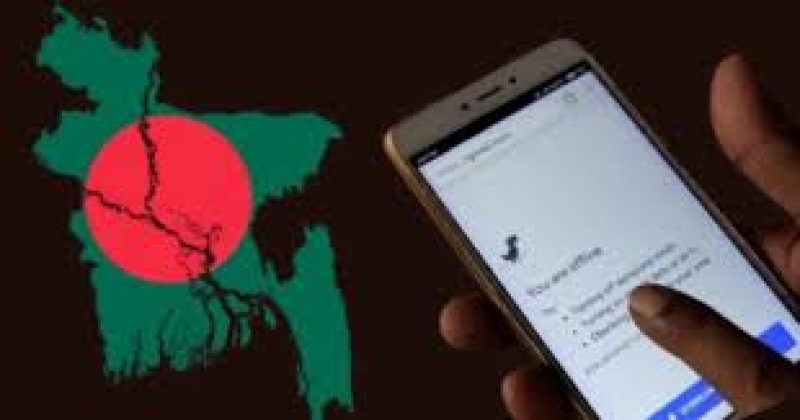- Lab Tests Find 67% Adulteration in Branded Milk Powder |
- DNCC Sets New House Rent Rules, Eases Burden for Tenants |
- RAB Officer Killed, Three Injured in Sitakunda Attack |
- Bangladesh Plans Padma Barrage, First Phase at Tk34,608cr |
- US Expands Trump’s Gaza Peace Board, Invites More States |
Bangladesh ICT Sector Faces Losses from 2024 Shutdown

As 2024 draws to a close, one of the year's most troubling events remains the prolonged internet shutdown during the July mass protests in Bangladesh. The disruption, which lasted several days, not only hampered communication across the country but also caused an estimated loss of Tk 2,000 crore to the nation's rapidly growing ICT and e-commerce sectors.
The internet blackout was imposed during a student-led uprising against the government of Prime Minister Sheikh Hasina. It began on July 18 and was enforced in phases, severely impacting both mobile and broadband services. While broadband internet was restored on July 24 and mobile services resumed by July 28, popular social media platforms like Facebook, YouTube, and TikTok remained inaccessible until July 31.
The shutdown dealt a severe blow to Bangladesh's ICT sector, with the e-Commerce Association of Bangladesh (e-CAB) reporting that the first 10 days alone caused a loss of Tk 1,400 crore. By the time the shutdown ended, the total damage to the e-commerce industry had risen to Tk 2,000 crore.
The impact of the shutdown extended far beyond e-commerce, affecting banks, insurance companies, businesses, offices, and airports that rely heavily on internet-based operations. Digital marketing firms, content creators, and companies engaged in online transactions were particularly hard hit, while small startups and digital entrepreneurs reported significant setbacks. For many, the damage has been so severe that recovery could take years.
The government's decision to restrict access to social media platforms was intended to curb alleged anti-government propaganda, but it triggered widespread criticism. Both domestic and international voices condemned the shutdown for undermining freedom of expression and damaging the digital economy.
Former ICT State Minister Zunaid Ahmed Palak faced heavy scrutiny for defending the shutdown by claiming that data transmission lines had been damaged by protesters. However, subsequent investigations found no evidence to support his claim, leading many to view his remarks as an attempt to deflect criticism.
The extended shutdown has been widely regarded as a serious blow to Bangladesh's emerging digital economy, tarnishing its reputation and raising concerns about the future of the ICT sector. Experts warn that such actions could deter foreign investment and stifle the growth of the digital economy.
In response to the incident, the interim government has launched an inquiry into the event, with ICT Advisor Nahid Islam leading the investigation to determine the causes and accountability behind the decision. Preliminary findings suggest that the shutdown was implemented under direct orders from the then-Prime Minister.
The 2024 internet shutdown has underscored the vulnerability of Bangladesh's digital infrastructure during political crises. As the ICT sector looks to rebuild, regaining trust and ensuring uninterrupted internet access will be essential for long-term growth and stability.

